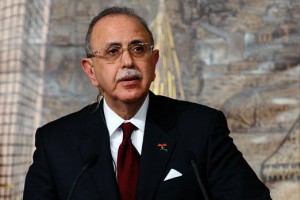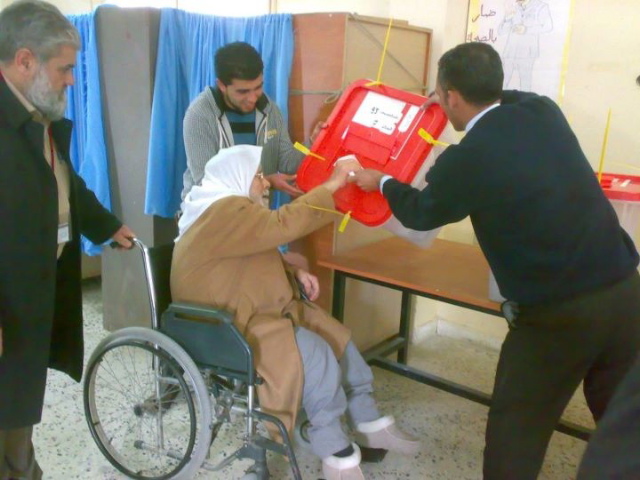
by Sami Zaptia.
Libyan politics came to a crescendo this week in the lead-up to the first anniversary of the formation of the National Transitional Government (NTC). Disgruntled groups in the eastern Libya who were feeling even more marginalised than the rest of Libya were threatening to break away either as part of a Libyan federation or as an independent state.
Could this be yet another revolution — on a par with the February 17 Revolution? Could this be the end of the unified Libya as we have known it? At the end, and in reality, and in spite of all the loud chatter on the social networks, there was, it seems, no real desire by the majority of Libyans for any such division.
Most analysts concluded that this was simply a build-up of frustration by most Libyans at the slow rate of progress by the NTC and interim Government one year on from that emotive March day in 2011 when the NTC announced its formation.
It was therefore with increased anticipation that Libyans — including myself — awaited the highly publicized appearance of Prime Minister Abdurrahim Kib on the official LRT channel on Tuesday (5 March) night.
The government’s performance is ‘good’
“It took us a lot of time to understand what was needed in the job and to settle in” – was Al- Kib’s reply to why his government was so slow in acting.
However, he felt that his government’s performance was “good..but it could be better”. He felt that safety and security were the main obstacles to progress and pinned the blame squarely on the thuwar (freedom fighters). “I call on all the thuwar to handover government property and their arms and enlist to official entities”, he pleaded.
“We have had successes”, he explained. “We now have an army of about eight to ten thousand. It is not easy building an army from patriotic people.”
No to centralization and no to federalism
But the Prime Minister seemed to also appeal to the general public for help. “The street should act seriously in calling for their legal rights through official institutions. We don’t need centralization or federalism. The King (Idris) rejected it. We don’t need to go back 50 years’, he stressed.
“De-centralization will give an opportunity for local government”, he explained. “We will activate government departments in Sebha and Benghazi and citizens should not have to travel 1000 kms to transact their affairs.”
“I am calling on the Central Bank of Libya (CBL) to make it easier for citizens to conduct their affairs in distant places like Benghazi and Sebha. I am also calling upon embassies to either reactivate or open consulates, and we are activating regional airports to facilitate transport.”
When asked by the presenter why the government has not made some major changes with regards to various policies, the Prime Minister felt that that “should be done through the Constitutional Assembly”.
Wages and Subsidies
The LRT presenter next tackled premier Al-Kib on the issue of raising wages. “These must be studied”, the premier replied. “For example, subsidies should be studied. Most subsidies go to fuel. But who gains most out of this?” he asked rhetorically. “Those who have more than one car”, he answered his own question. “But what about those who have no cars?” he asked again. A lot of subsidized goods are smuggled and Libyans do not benefit from them, he concluded.
“I have asked an international organization, free of charge, to study who most benefits from subsidies. If it is the rich, it is better that we give people the money directly.”
Returning to the original question posed about wages, he concluded that “increased wages will be studied. We need to know who benefits from these wage increases”, but declined to give a time frame for the results of this study.
The LD 2,000 handout
The presenter then referred the Prime Minister to the matter of the LD 2,000 and LD 200 announced for distribution to all the Libyan people by the NTC. In his replies to this, Al-Kib made some interesting revelations about how the Libyan government operates and the lines of authority between the NTC, the CBL and the government.
“The LD 2,000 was decided by the NTC. We have no problems with that decision”, he stressed. “The CBL is studying the mechanism for its distribution.” Next he went on to reveal the limitations of the authority of the present government.
“The CBL is under the authority of the NTC. Many financial matters and issues are under the CBL and NTC and not the government”, he explained.
Libya’s frozen assets
Regarding the perplexing matter of Libya’s huge overseas frozen assets, Prime Minister Al-Kib explained that “the overwhelming majority were released. We are not transferring them all to Libya. We re-invest some and use some when we need it. Not all of it is in liquid form”, he explained.
Human rights abuses
On the issue of alleged human rights abuses by Libyans post liberation, Premier Al-Kib stressed that these were “personal and are not systematic”. He also hoped that the arms embargo on Libya would be lifted so that Libya could buy some arms.
Most Libya’s African investments are a failure
Concerning Libya’s investments in Africa, the Prime Minister said that unfortunately most of these were “a failure”. They are very diverse “like an octopus. We have formed a committee to oversee our overseas investments. Our Libyan embassies abroad were full of arms – enough to carry out a coup in some African countries”, he lamented.
“We have asked all other countries to return supporters of the previous regime to Libya to face justice.” He stressed with regards to prominent figures fleeing Libyan justice.
The independent Libyan media
On the topic of the flourishing of independent media and the late arrival of the state media outlets, such as the LRT channels, Prime Minister Al-Kib stressed that “we don’t want the LRT to become a trumpet for the government, but it must give the government a chance to put its case.”
“I respect the independent private Libyan media outlets, but they must also take on the responsibility. They must build not destroy and unite not divide. They must say the truth without hidden agendas – especially at this critical time.”
The budget
With reference to the much anticipated budget, the Prime Minister tried to allay people’s fears by stressing that “the budget will be passed by the NTC very soon. They have come back with some enquiries about it, but there will be money soon”, he assured. [/restrict]






